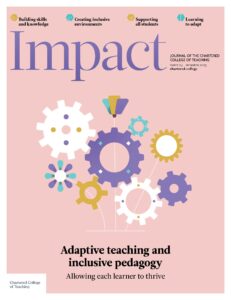PAULA FIELDHOUSE, MATHS LEAD, LEARNING WITH PARENTS, UK
Children’s attitudes to mathematics and their beliefs about whether they can succeed in it are influenced by their parents* (Mohr-Schroeder et al., 2017). Attitudes matter; if you believe that maths is something to be afraid of, then you are unlikely to be motivated to learn it. If you think that your ability to learn maths is fixed, something that you’re born with, then you are unlikely to persevere when it gets hard. Maths anxiety is thought to affect around 20 per cent of adults (Ashcraft and Ridley, 2005). If parents are anxious about maths, then it is more likely that their children will be too (Maloney et al., 2015). Children of highly anxious parents were found to have learned significantly less maths in primary school than those of less anxious parents (Schaeffer et al., 2018). This means that a large number of children are approaching maths learning at a disadvantage because of the attitudes and beliefs inadvertentl
Join us or sign in now to view the rest of this page
You're viewing this site as a guest, which only allows you to view a limited amount of content.
To view this page and get access to all our resources, join the Chartered College of Teaching (it's free for trainee teachers and half price for ECTs) or log in if you're already a member.











